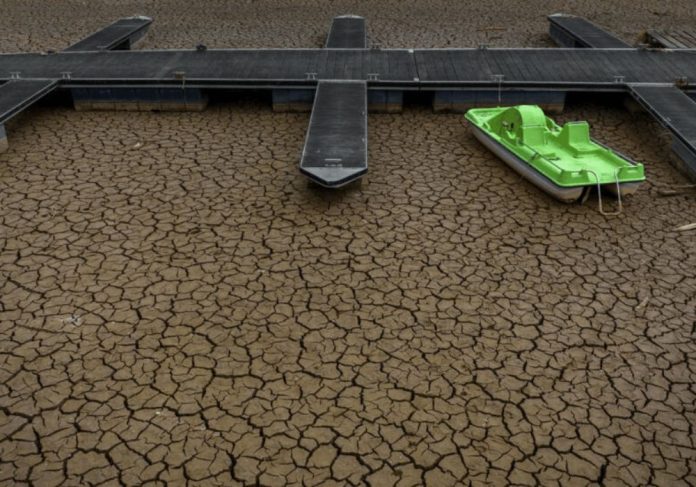News in brief: Spain has dedicated 2.2 billion euros ($2.4 billion) to combat drought, which is affecting urban and rural areas alike. The funds will be used to increase water reuse, build infrastructure to treat wastewater, increase the national supply of drinking water, and help farmers through direct aid, insurance, loans, and tax breaks.
The government of Spain has announced that it is dedicating 2.2 billion euros ($2.4 billion) to combat drought in the country. As the reports claim, the money will also fund urban water reuse and help farmers.
The country’s Ecological Transition Minister, Teresa Ribera, explained that the recent drought is higher than usual. Regions in Spain are typically prone to droughts because of their location to the westerlies; winds moving from west to east.
Ribera said 1.4 billion euros ($1.52 billion) will go toward building infrastructure to treat wastewater in urban areas. She hoped that the effort will double water reuse. Also, the country will use the fund to more desalination plants to increase the national supply of drinking water.
Spain’s Ministry of Agriculture, Fisheries and Food pledged 636 million euros ($690 million) to farmers, ranchers and beekeepers via direct aid, insurance, loans and tax breaks. Meanwhile, they have cut water allowances with scarcity extending beyond farms and into drinking water.
Authorities are advising people to take quick showers, wash dishes carefully and not fill pools to save water in the village of Castellcir. A medieval village, which was flooded in the 1960s by a lake that feeds the Sau Reservoir, emerged. The reservoir was at 7% capacity in April 2023 and will continue depleting if rain fails to fall.
Spain drought is an agricultural disaster
Farmers of grain crops lament that if the weather does not change, they will have nothing to harvest. The country, which is the biggest exporter of fresh fruit and vegetables in Europe, have seen crops dry up in the drought which began late in 2022.
According to a CNN report quoting the Coordinator of Farmersâ and Ranchersâ Organizations (COAG), the drought has destroyed 3.5 million hectares of crops. Samuel Reyes, director of the Catalan Water Agency, said that it was the worst period they have had in the last 100 years.
Agriculture, including livestock and fishing, accounts for more than 20% of Spain’s foreign trade. With pastures drying up, farmers have to buy food to feed their animals, increasing cost of production. Even beekeepers are not safe as water shortages have caused lack of harvest for three seasons in a row.
Earlier in the week, the government announced plans to ban outdoor work during extreme heat periods. In the city of Córdoba, southern Spain, temperatures reached 38.8 degrees Celsius (101.8 degrees Fahrenheit). There is a threat of wildfires cause by the heat and dryness.



